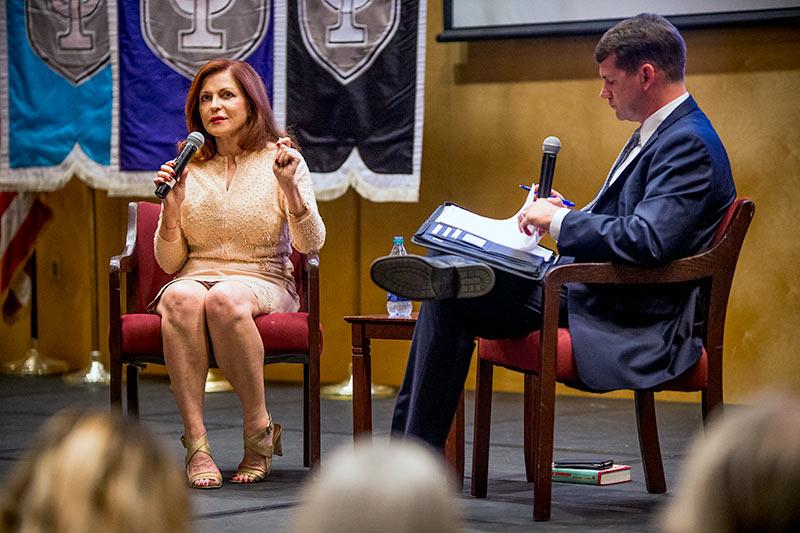New York Times columnist reflects on 2016 election
Renowned New York Times columnist Maureen Dowd spoke at Tulane University on Wednesday about the politics and personalities of the 2016 presidential race as explored in her book The Year of Voting Dangerously: The Derangement of American Politics.
Dowd, a longtime White House correspondent, described the challenges faced by both the Clinton and Trump campaigns during the election. Through a series of anecdotes from her interviews with Washington elites, including both candidates, Dowd painted several scenarios of what a Trump presidency might look like.
Dowd said that while the news media can typically recognize the mood of the public in an election year, it is harder for reporters to understand the way a candidate will act when in office.
“You can travel with politicians for two years and have cascading news cycles and ask them every question under the sun, but can you really know who they are? I don’t really believe that anymore,” said Dowd. “The reason I don’t is because you never know what historical event is going to happen once they get into office, what insecurities or gremlins will come out, and how those two things will interact.”
Brian Brox, an associate professor of political science at Tulane whose research focuses on campaigns and elections, served as a guide to Dowd’s discussion, which touched on the hows and whys of Hillary Clinton’s loss.
“Hillary lost mainly because she didn’t have a clear message. The subtext of her campaign was basically ‘It's my turn now,’” said Dowd.
As for Trump, Dowd believes his ultimate weakness is flattery.
“They say that the last person in the room who gets to speak to him has the most sway, so all of his top advisors jockey for the last word in a meeting,” Dowd explained. “Trump said he hated Obamacare, but after his meeting with Obama he said he would reconsider some aspects of it. That’s because Obama was the last person to speak to him.”
Wednesday’s talk was a part of Forum Tulane, an initiative designed to foster intellectual exploration through an annual university-wide conversation around a common theme. This year’s theme is power.
“Power warps some people who get it, while others rise to the occasion,” said Dowd. “We don’t know what will happen in the coming months. It is our responsibility to hold politicians accountable.”
Samah Ahmed is a junior majoring in public health at Tulane University.

